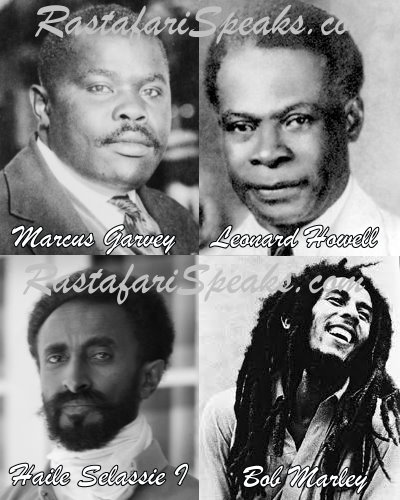Music and Rastafari Movement
January 13, 2014
http://www.herald.co.zw/music-and-rastafari-movement/Many a musician in Zimbabwe today identify with the Rastafari Movement. Before I go on, please note that I did not say ‘Rastafarianism’.
The word ‘Rastafarianism’ is taboo to true ‘Rastafarians’ because this term is considered derogatory and offensive by most Rastafari followers, who, being highly critical of “isms” (which they see as a typical part of “Babylon culture”), dislike being labelled as an “ism” themselves. If you will remember, Bob Marley and Peter Tosh sang against “isms” and “schisms”.
As one Jamaican visitor who was in Zimbabwe at Independence and came back again in 2013 observed, “There seems to be more and more young people spotting dreadlocks now than in 1982.
“When I return to Jamaica, I am going to tell the bredren how Rastafari movement has spread all over the world through interest generated by Jamaican music”.
This brother obviously thinks that the Rastafarian movement originated in Jamaica.
So according to him, Rasta is a Jamaican thing.
Zimbabwe’s popular musicians such as Dr Thomas Mapfumo, Jah Prayzah, Mannex Motsi, Mic Inity, Winky D, Pablo Nakappa, Ras Jabulani, Munya Nyemba of Transit Crew, Themba Ndlovu and many others wear dreadlocks, but whether these musicians can be called Rastas is questionable.
When members of the society go to their gigs you often hear them saying, “Handei kuma Rasta”.
When the Black movement was very strong in the US, its leader Marcus Mosiah Garvey, who is to this day a Jamaican national hero, extended it to Jamaica.
Garvey was deported from the US to Jamaica.
His actions were considered too rebellious and dangerous for Edgar Hoover, who later became CIA head.
In Jamaica, Garvey continued to claim social justice and equal rights for the Black people.
About 1930, the Garvey movement collapsed, thereafter, Leonard Percival Howell, another Jamaican, who spent some time in the US, spread a Black social movement, called Rastafari, on the parallel track of Garvey in Jamaica.
The name Rastafari is taken from Ras Tafari, the title (Ras) and first name (Tafari Makonnen) of Haile Selassie I before the coronation.
Howell had been influenced by many sources such as Gandhi, Marx, Einstein and The Bible, but it is the Indian culture which became pervasive. Selassie 1 was revered as God because according to their Biblical beliefs, Ethiopia was the only African country which was not colonised by the Europeans.
It was therefore regarded as a holy country.
Howell opened a gathering camp called Pinnacle ( 10 miles from Kingston) where all his followers, notably Hindus and women, lived until the police destroyed his camp in 1958.
Howell was a mystic man!
He took and signed his writings with a Hindu nickname Gangunguru Maharadj which later became Gongugu Maharadj, then Gong.
That is where Bob Marley found his own nickname, Gong . . . and today one of his sons Damian Gong Jr. Marley also uses that name.
Bob Marley’s early recordings are on Tuff Gong Records, a well known recording label in Jamaica. The Hindu roots are found in this name.
Howell was the first who pointed Haile Selassie I as the Black Messiah, but at his time Rastafari was not a religion.
It became spiritual with people at Pinnacle who read the Bible and associated Haile Selassie I as their saviour, as their ‘spiritual guide’ as divine that everyone else, as Hinduism teaches, that everyone is divine. In Rastafari and in Hinduism, everyone is divine.
The adherents of the Rastafari movement began to worship Haile Selassie-I, the Emperor of Ethiopia, who ruled between 1930 and 1974.
They referred to King Sellassie-1 as King of Kings, Lord of Lords, The Conquering Lion of Judah and they worshipped him in the same manner God is worshipped in Hinduism, as Father, as Guide, and as Supreme God on top of everyone/everything.
So, while the Rastafari movement is an African movement, which began as a social movement but slowly turned into socio-religious ideology, its thrust, like in Hinduism, continued to be against slavery, colonialism, and all forms of discrimination.
Actually, it became essentially a ‘way of life’ (livity) more than a strict religion.
I remember years ago during a Peter Tosh concert when he shouted from the stage, “Legalise marijuana for ganja is the only thing that makes you wiser and gives you purification.
“It is the only cure for asthma. Black people, unless you come to this realisation, you shall remain in dem bombaclot chains”.
In another words, Howell imitated the Hindu way of life and adapted Rastafari to be based on African roots, beliefs and faith which are totally oriented towards Africa (with Ethiopia – mythical or real – as cradle) when its way of life (livity) is a perfect copy of Hindu life style, so Indian.
By the late twentieth century, awareness of the Rastafari movement had spread throughout much of the world, largely through interest generated by reggae music, especially the major international success of Jamaican singer/songwriter Bob Marley.
By 1997 there were, according to one estimate, around one million Rastafari faithful worldwide.
As for reggae music which has sold Rastafari to the world, it is now pure Jamaican.
It is therefore not surprising to see the ‘religion’ spreading to Zimbabwe where a lot of dancehall musicians have identified with the music as you hear most of them chanting ‘Jah Rastafari!’
Linda Ainouche’s discoveries are now being turned into a self-directed and self-produced film entitled ‘Dreadlocks Story’ which will be released next month.
The film aims at exhibiting the bonds of survival of African and Indian culture in Jamaica in view of up-front anti-slavery and anti-imperialist struggles!
The film has been shot in 4 countries (India, Jamaica, France and the USA), in 4 languages (Hindi, Jamaican Patois, French and English), and its background music is reggae and dancehall.
Feedback: f_zindi@hotmail.com.http://www.herald.co.zw/music-and-rastafari-movement/
